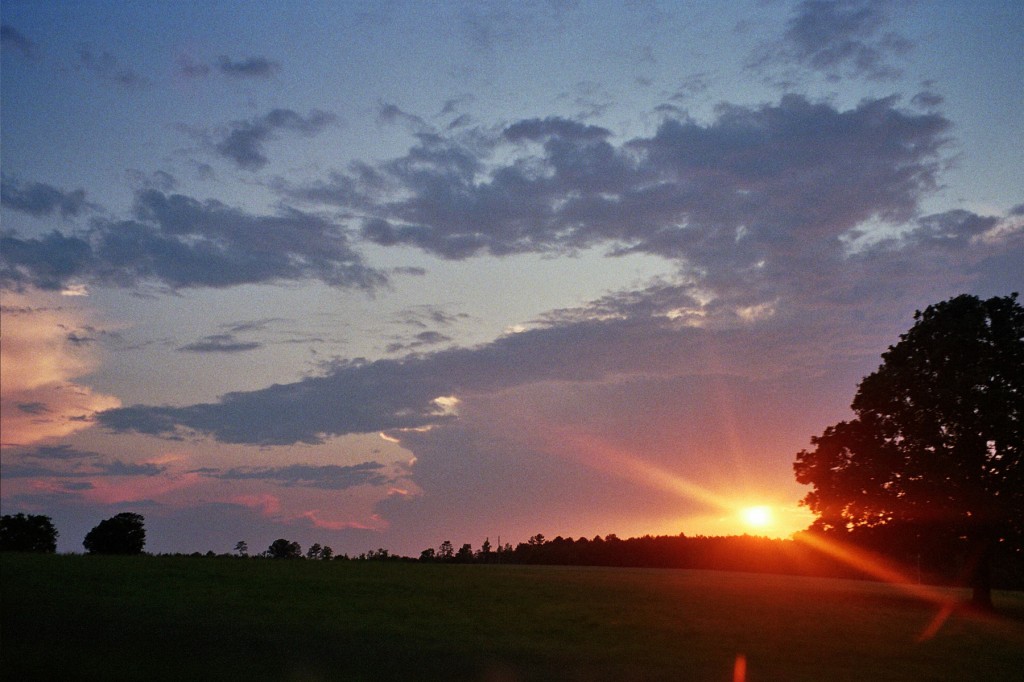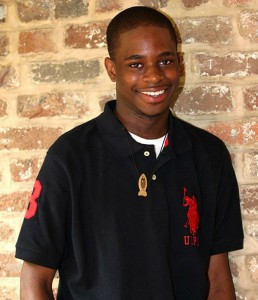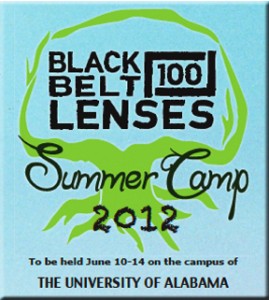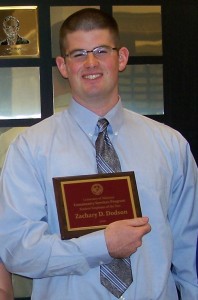Transcript of the Martin Luther King Legacy Banquet Lecture, January 18, 2013, delivered by Cynthia Tucker, University of Georgia
Well, I’m not sure I can live up to that introduction that Dr. Mullins has given you. Thank you so much. I am delighted to be with you this evening. I am close to home, even if I am here in Alabama territory. I have enjoyed my evening so far. And if I’ve had to listen to a little bit of gloating about a certain recent football game, I can handle it. I can handle it.
I am genuinely happy to be here. I am now one of two Charlene Hunter-Gault Scholars in Residence at Georgia. Her entrance to the University of Georgia was one of those barrier-breaking moments that changed, not just the South — we think of these moments as changing the South, but they also changed the country. It has been an astonishing 50-60 years of incredible progress. It is amazing to think of that.
To the kids in the room thinking “50 years, if I live to be that old …” but in the lives of nations and in terms of social and civic change, 50 years is not a long time at all. And the United States has seen incredible change in the last 50 years. Much of it I remember. I’m not going to tell my age, but I will say that I remember many of those signal moments. I remember George Wallace’s stand in the schoolhouse door. I was a kid, but I remember it. I remember the March on Washington. And I remember the absolutely horrible church bombing in 1963. And now just yesterday when I was in Washington, the city was preparing for the second inauguration of the nation’s first black president. (applause)
I have to tell you I bet that I’m not the only one in this room who didn’t believe it would happen in my lifetime. I simply did not believe a black president would be elected in my lifetime. I certainly believed it would happen but I did not believe I would live to see it. And this time I did not believe it until Ohio was called. And I wrote a column saying I didn’t believe it was going to happen. And so something was happening in the country that I simply did not see coming, that despite my journalism experience — and what I think of as pretty good reporter’s instinct — there was something going on in the country that I simply did not see coming.
I remember having this conversation with a colleague of mine, another black colleague, a little younger than me, shortly before Obama’s first election and polls were showing he was going to win, and we were both discussing our doubts. And she said, “You know, Cynthia, that means the country has changed in ways that even we don’t see.” And I think that change is now absolutely clear in the second election. There are some political scientists and scholars who are arguing that the second election is more important than the first. The first was historic, the second transformational. The first might have been dismissed as a fluke for many, many reason. The second signifies that the nation has changed in fundamental ways.
I still remember that first election vividly. I remember the first inaugural. I had, in my dotage, decided to adopt a newborn. I had two tickets to the inauguration and my child was supposed to be born in January but was born in December 2008. So I sat with my mother, on Barack Obama’s first inauguration with my newborn in my lap, and watched the ceremonies all day long, thinking that my child will grow up in a country where having a black president is not only possible but part of her history and she will see two little kinky-haired girls running on the white house lawn. I find that remarkable. And with his second election she thinks that’s the way it should be.
As I was listening to Dr. Dunning talk earlier about trying to present the legacy of the last 50 years and not sound something like — what did he allude to? — Napoleon or some ancient history. I know how different that will be because the changes are so amazing. Young people born in 1970 do know the country I was born in and that’s a good thing. That country was so strange and perverted that it’s really difficult to describe. Last evening when I was in Washington surrounded by some legendary black journalists, I was sitting at a table where the very distinguished Simeon Booker, now 94 years old, who was working for Jet Magazine, was telling stories about the Civil Rights Movement and being chased by mobs. There was a young black woman, right out of college, she was sitting and listening with fascination on her face that I used to have when my grandparents would tell stories. You know, “how far I used to have to walk to school” or “the bucket I carried biscuits in.” (laughter) And I just though, you know, I said to her, “You know it seems strange, but I remember some of this and it wasn’t that long ago.”
So I think we should all be celebrating and rejoicing about the absolutely seismic social changes the country has seen in the last 50 years. However, I did not come just to talk about celebration and just to pat ourselves on the back about how far we have come. I want to talk a little about what I think the country looks like today and what I think it will look like in the next 30–40 years. And what I think a good American, those who want to continue to see their country as the shining city on the hill, ought to be thinking about.
What should the movement for us look like, as we try to keep this country a beacon for equal rights and human rights for nations all over the world?
Obama’s second election signaled the solidification or solidity or what I call the “Obama Coalition.” This is a group of voters who supported his presidency twice … that are multigenerational, multiracial, and multi-ethic. Certainly you all know because you heard about it from November 6th to now. You know about his demographic groups that were in his coalition. Obama won with upwards of 95% of the black voter and more blacks voted in 2012 than voted in 2008. He got about 71% of the Latino vote. He got 73% of the Asian vote, but he also got a significant percentage of the white vote. He got 39% of the white vote overall, but he got 44% of white voters under age 30.
Now that was the second election. That marks a drop off from 2008, when he got 54% white votes under the age of 30. So that means there is a significant minority or perhaps a majority, depending on the economic conditions of white voters that see the country in ways that there parents and grandparents do not. Clearly, they are much more comfortable with the demographic change that we have seen over the last 40 or 50 years.
But here is the challenge I think for all of us: “Can this multi-ethic coalition hold together as a vibrant democracy?” There are naysayers who say it cannot. Older conservatives, who still harbor clear racial antagonisms like, Pat Buchanan, said the United States will not survive when the white population falls below 50%. I am not making this up. He wrote a book in 2011, Suicide of a Superpower: Will America Survive to 2025? and it’s all about the demographic change of the lost white Christian majority and how that does not bode well for American Democracy. And Buchanan is not the only ultra-conservative with that view. For some esoteric reason I immersed myself into that type of reading last summer, so I can assure you he is not the only stinker out there who believes the country can’t survive as a multi-ethic democracy.
Professor Robert Putnam, who is a die-hard liberal, has done research that shows that people of different races and ethnicity do not have an easy time learning to live together as one community or one nation. Putnam is best known for his book Bowling Alone on frayed civic ties. But he has also studied the effects on diversity and its effects on social capital. As what he found was that residences of diverse cities and towns came to trust their neighbors and civic institutions less than residences of homogenous communities. He called it the “turtle effect.” There is something about diversity that makes turtles out of all of us. I interviewed him about this research and he was troubled because conservatives had used it as ammunition for their argument — “I told you the country was going to be in trouble if it becomes more diverse!”— but he said, “That’s not what my research shows, but it does show that for communities to forge strong social ties when they’re diverse is not easy and does not come natural; it is something that takes time and something we all have to work at.” I think that is something that all of us in the room need to think about, because regardless of what Pat Buchanan thinks, we are already in this multi-ethnic diverse nation.
We cannot go back. By the year 2050, whites will no longer be a majority of the population. They will still be the single largest ethnic group but they will not be a majority. That is the hard demographic fact that Mitt Romney did not see coming at him. (laughter) The Republican Party still has to come to terms with it and they have to grapple with that, but so do we all. It is not just a political matter and a voting matter; it speaks to how we will cohere as a multi-ethnic nation. How do we think of ourselves? And I would argue that we still have some work to do in terms of getting to know each other well as a multi-ethnic democracy. Yes, we have done so much over the last 50 years, but we all know that the work is not yet done.
Now I can tell you that the kind of race bigotry that Martin Luther King and Andy Young and Joseph Lowery and so many in the movement, including some in this room, spent their lives battling is essentially dead. I am not arguing that racism is dead. I got an email from a reader who called me a jigaboo, so I would certainly not argue that racism is dead, but I will tell you that as a powerful political force in this country that sort of racism was buried on November 6, 2012. That’s over. But we still have to struggle with getting to know each other well enough, getting to trust each other enough that this country can continue to be a vibrant democracy.
I look around in churches, which Martin Luther King criticized as largely segregated. We call ourselves a Christian nation, certainly in the Deep South, and yet at 11 o’clock on Sunday morning, we are still, what? segregated. (audience says “segregated” in unison with her) That has not changed very much, which is something to think about, something to think about. I think we also need to think about how and whether we are welcoming all these new Americans, who in my view have helped make this a stronger and younger country.
My home state has the distinction of having passed the toughest anti-immigration law in the country. Despite the fact that there are so few illegal immigrants in this state — hard to run into any — they make up about 2% or 3% of the entire state population. Yet, they are seen as such a threat. Now Alabama is not the only place that has done this, Georgia is not far behind. They have about the second or third harshest law aimed at illegal immigration in the country. Again, for a state that likes to talk about its morality, its Christianity … . I wonder what happened to that gospel about how we treat a stranger? There have certainly been Alabama churches that have risen up in protest against these immigration laws. It has not been anything, though, resembling a full-fledged movement, which is a little food for thought.
What about the Muslims among us? What do we do when a mosque is threatened? How is it when a group of Muslims want to build or expand a mosque, it violates building licenses. If we are truly going to become a vibrant, multi-ethnic democracy, we have to be welcoming and respectful of every law-abiding citizen. We know the Constitution is still a hallmark document that informs democratic movements all over the world. We brag about it a lot. We certainly brag about it to foreigners, but sometimes I wonder how far we actually take it. Again, a little food for thought. How will we become the vibrant multi-ethnic democracy that I hope we will be in the year 2040?
And on one note on the broader question on diversity: In the old days the struggle was of the righteous against the old system of Jim Crow. Today we have to find a way to battle against a broad range of prejudices that will keep us from investing in all of our talents. We have to battle not just racial prejudice, not just religious prejudice, but also prejudice over sexual orientation. I wasn’t sure if my president was going to do enough to endure full equality for gays and lesbians. I am proud of what he did in the last two years of his first term. I think there is much more work to be done. There is much more work for all of us to do on that.
I have written in columns more than once that gay marriage is not just a rite — R-I-T-E — but also a right —R-I-G-H-T. You don’t have to accept, your church doesn’t have to accept the marriage of gay men or the marriage of lesbian women to allow them to get married at the courthouse. No Baptist church, no Catholic church, and no Jewish synagogue, if they choose not to — none of those religious centers — has to marry a gay couple. Couples get married at the courthouse every single day. The same privileges that extend to the rest of us Americans, the right to be married before the law, ought to extend to all. Young people are already there. So I am confident we will see that change by the year 2020, by the year 2030.
I had a young woman in one of my classes, who describes herself as a conservative Christian, and she was trying to figure out something to write about. I said, “You know if you’re a conservative Christian you probably are opposed to gay marriage.” She said, “You know I have never really thought of gay marriage because it is none of my business.” I thought, well that is a dramatic change and one that we all need to be able to get our heads around.
The beloved community that Martin Luther King struggled for is, I think, in sight, but it is not quite here yet. We all have some work to do. From what I know, King never saw the movement as about black people. King’s beloved community was always about more than that. And I know that the final crusade he had in mind was a poor people’s crusade, that he intended to unite all poor people in America — black, white and brown. So, I know that King was committed to a beloved community that was multi-ethnic. I think he would be pleased to see how far we have come, but I am pretty sure he wouldn’t want us to rest on our laurels. I am pretty sure he would keep pushing us along for the work ahead. There is plenty more work to do, I urge you to continue that work.
Thank you very much. (standing ovation)
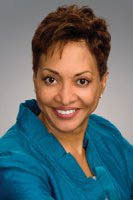 TUSCALOOSA — Cynthia Tucker knows firsthand why it’s important to remember the legacy of Dr. Martin Luther King Jr., who pastored a church 100 miles away in Montgomery, Ala., when she was growing up in Monroeville.
TUSCALOOSA — Cynthia Tucker knows firsthand why it’s important to remember the legacy of Dr. Martin Luther King Jr., who pastored a church 100 miles away in Montgomery, Ala., when she was growing up in Monroeville.